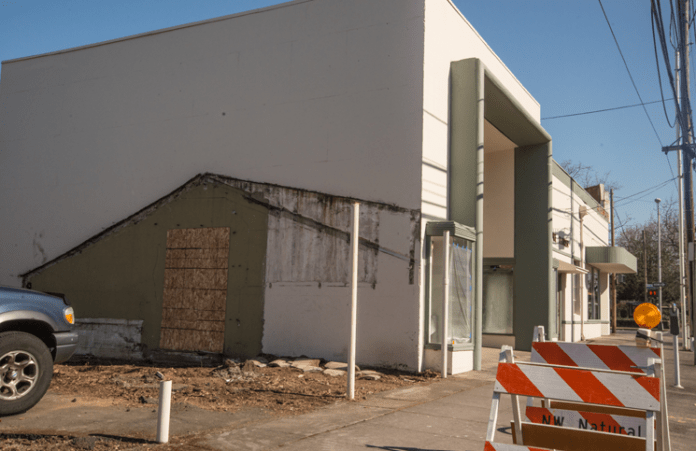The city of Vancouver and Vancouver’s Downtown Association (VDA) are working in tandem to help property owners redevelop underutilized buildings through a new initiative known as the Adaptive Reuse (AR) program. The program concentrates on offering technical assistance to property owners, monitoring that property owners’ progress throughout the redevelopment process and utilizing the completed property as an educational example for other area investors considering redevelopment.
“When a building sits vacant for a long time, it becomes out of compliance and becomes a daunting task,” explained Teresa Brum, economic development manager for the city of Vancouver. “[Take, for example,] a building that was never a restaurant but a new business owner wants it to be. All kinds of permitting requirements kick in and the business owner doesn’t necessarily know that when they get started, so we’re helping shepherd them through the process.”
According to Brum, the program does not provide direct financial assistance but, rather, packages existing incentives together with a team at the city that has been assembled to help with business assistance, building codes, land use and permitting. Each property owner who agrees to take part in the AR program is given ‘front-of-the-line’ treatment which, in turn, expedites revitalization and job growth and immediately benefits surrounding properties.
“A national study shows surrounding property (of vacant property) is devalued by one-third,” Brum offered.
Although the program is currently focused on the downtown core, the city is talking with property owners along the Fourth Plain corridor and identifying brownfield sites (contaminated properties) such as former dry cleaners or gas stations as prime AR candidates.
Lee Rafferty, executive director of the VDA, and her staff are reaching out to every one of their members and educating them on the attributes of the program as outlined by a Portland-based consultant.
“VDA has brought the expertise of a particular consultant to our downtown on two other occasions and we brought her back – Michele Reeves. This time we asked her to come back and talk just to property owners. She gave examples – some large, some very old – of buildings they just didn’t know what to do with. It looked like such a daunting task, these great big spaces, turning them into their next great gig,” Rafferty said. “We talked about choosing property owners who might be willing to hear some guidance and follow it.”
All property owners must agree to have their progress followed including submitting to photos throughout the process, presenting quarterly updates at VDA meetings and talking with media about the highs and lows of the program.
With his recently-acquired 1936 Luepke building purchase, Bruno Amicci is the first property owner in the AR pilot program. Anchoring what is being renamed Luepke Station is Luepke Flowers and Finds, in business at that site since 1909. Brum shared that Amicci intends to repurpose the underutilized property into a mix of retail, restaurant and office space.
“Bruno Amicci has taken every bit of this opportunity and is making it work,” said Rafferty. “[He’s a] marvelous downtown investor – honoring the old and reshaping the property into a very interesting mix of uses that will really be a great add to downtown.”
For more information on the Adaptive Reuse program, contact Teresa Brum at Teresa.brum@cityofvancouver.us.




